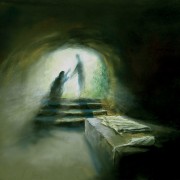When the dead preach
I am here again in the Dissection Room (DR), the familiar scent of Formalin highlighting the sanctity of its atmosphere. Apart from the incense-saturated atmosphere, and the white-clad ‘catechists’ surrounding their ‘lifeless priests,’ little chants of Latin ‘prayers’ could be heard: “Flexor Digitorum Profundus.” Say Amen to that!
By the way, that is the name of a muscle. Not much has changed since I last visited the DR, at least not the shadow of a man lying supine on dissection table number 12. He is still very dead! With a scalpel in one hand and a pair of forceps in the other, I do my best to skilfully cut my way through skin and fat all in a bid to discover the evidence of what I have been taught in Anatomy 201 by some of the country’s most learned minds. But even these foremost Anatomy Professors cannot fully describe or explain the beauty and sanctity of what I am seeing. It is amazing how the innate are able to articulate to us the beauty of the life we are living! How the dead can talk and the living cannot! More amazing is how the confluence of nerves, veins and arteries and the contours of muscle combine to produce the shadow of a complex organism, an almost complete Homo sapiens. If only he could rise and breathe for a brief moment!
Ironically it took just a brief moment for this gentleman (too gentle for my liking) to prove his mortality. I may never know how he died or how he was born, what his name was or how he came to be lying at the edge of my scalpel. I may never know whether or not he was a good man in his lifetime. But on this side of life, he has proven to be one of the best teachers I have ever met and will ever meet or meat.
A legend is told of a certain three-day old cadaver who chose that particular fate—death—and self-managed to raise himself up! I once tried raising myself up alive o. Try as I would, I only succeeded in discovering new ways to fail. You may want to try too. According to this legend, He was God. That explains why he was able to resuscitate himself right? For who else can do that? Now, in choosing a way to die, if I were in his shoes, I would have chosen the easiest way. Wouldn’t you have done same? After all, he had the power. But the legend says he did the complete opposite. Well, it is just a legend so it cannot be true or can it? Everything and anything is possible in a legend. It need not necessarily be true.
Did this legend really happen? Unfortunately, it did. History corroborates the fact that at one time in the distant past – some two thousand years ago – a man died on a cross on the outskirts of Jerusalem. And his reason for dying was not so ‘wise’: He loved you and I so much so that He chose to die to save us from our imminent ‘death’ (which we very much deserved by the way). They say love is blind, don’t they? But I doubt if God is blind. If God really saw us in our most wretched, unlovable state and still chose to die for us, how shall we call this? Not love? Love which we did not deserve yet which He kindly and willingly gave.
Like the cadaver on my table, Jesus died to show us a way—the way! In His death, He revealed to us something – that the beauty of life lay in the act of dying to the flesh. He taught us that it was only in dying to the flesh that we can rise up. He taught that sinful man had to be born again in order to experience the beauty of life [John 3:3, Romans 8:1-8]. We may try raising ourselves up by ourselves but who would we really be fooling? The Law of gravity is at work in full gear. It will only take the laws of aerodynamics to help us overcome it. The pulley has been set. Jesus is ready and willing to pull you out of the mess you are in. He will do so if only you will hold on to the gift of his rope of hope, of a second chance, of salvation from sin, of grace – if only you will believe!
Back to that glimpse of our fate lying on my concrete table in the DR – the grim picture of our future: we shall all die! [Hebrews 9:27]. No one knows when though, except the All-knowing God. When and when death comes, what happens then? What happens then is a detailed accounting of how we used everything that we were given, even this sermon from an unknown cadaver. How are you going to answer?











